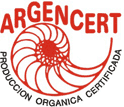www.ofa.org.au
-
Join the OFA -
OFA ORGANIC UPDATE
How to make a complaint to the ACC about organic products
The Organic Federation of Australia (OFA) initiated the Australian Standard AS 6000-2009 to assist the existing regulatory system to be more effective in ensuring the integrity of organic and biodynamic products.Now that the new standard AS 6000-2009 has been published it is important to understand how it could be used by the Australian Competition & Consumer Commission (ACCC).
The role of the ACCC is to regulate misleading and deceptive conduct under The Trade Practices Act 1974 (the TPA). The ACCC can take legal action against a trader for contraventions of the TPA. It particularly targets conduct that is widespread, blatant or involving serious detriment to consumers.
A Clear Definition of What Defines an Organic Product
The need for a clear definition of what defines an organic product was made by an Australian Federal Court decision concerning false representation of organic eggs. The Hon. Justice Gray
acknowledged the absence of any recognised legal definition of the term 'organic' and the difficulty this presented in creating an enforceable injunction in broader terms to prevent
misrepresentation of eggs as 'organic'.
Justice Gray stated 'attempts to overcome the lack of clear criteria by which it can be said eggs are, or are not, organic have been unsuccessful'. The ruling highlighted the need for a uniform, accepted standard that deals with organic and biodynamic products.
The Standards Australia process used to develop AS 6000-2009 had the rigour and transparency of the accepted international best practice in standards development (The International Organization for Standardization - ISO).
An important part of the process of developing AS 6000 was the technical input from relevant and widespread stakeholder groups including industry, consumers, retailers and regulators. This ensures that it is a credible consensus document on the terms 'organic' and 'biodynamic'.
Generic Organic and Biodynamic Claims
From the organic industrys perspective the critical area will be where a trader claims a product is organic without any reference to being certified to a specific standard.
The ACCC may then use AS 6000-2009 as a reference point when assessing whether the organic claim is misleading or deceptive.
Those traders making a claim without certification will have to show clear documentation to substantiate their claims. This will not be simple without a credible certification system.
Certified Organic and Biodynamic Claims
All organic standards in Australia are voluntary. However, all organic claims, whether they reference a standard or not, must be able to be substantiated. If a business claims to meet a particular
standard it must ensure that this claim is true.
Substitution
The ACCC can take action where there is substitution of non organic products for organic products.
Imported Organic Products
All products sold in Australia, whether produced domestically or imported are subject to the TPA. This means that the ACCC can take action against imported products that make misleading or deceptive claims.
ACCC Actions
Depending on the level of misrepresentation or fraud the ACCC can take a variety of actions. These range from asking for all claims of 'organic/biodynamic' to be removed from the product through to prosecution in the courts with fines for false representations, including up to $1.1 million for businesses and $220,000 for individuals.
|
How to Make a Complaint to the ACCC
The information on how to make a formal complaint to the ACCC is on their website:
The specific organic information can be found at: The ACCC information centre is available to explain your rights and obligations under the legislation, and how they are likely to react to particular business practices. This service is available to both business and consumers and is free of charge. The Infocentre can be contacted by calling 1300 302 502 (Australian callers) or + 612 6243 1305 (overseas callers). Staff are available during office hours (9am-5pm Mon-Fri Canberra time). The critical issue is to have credible documentation to substantiate the case. For the ACCC to take action against a business it needs evidence to substantiate the allegation that the business has contravened the TPA. While an ACCC investigation will gather that evidence, complaints that provide detail and set out the basis for concern are more likely to assist the ACCC in pursuing a matter. Examples of the types of information that are useful for the ACCC when it's investigating a matter include: dates and times of any conduct of concern, any way to substantiate an allegation, for example ex employees who know details of the conduct, other people who may be able to provide information and any written evidence. Consumers and businesses that have been harmed can also take legal action against businesses for a contravention of the TPA.
Andre Leu |
Phone +61 1300 657 435
PO Box 369 Bellingen NSW 2454 Australia
Join the OFA
Subscribe to the Organic Update
















